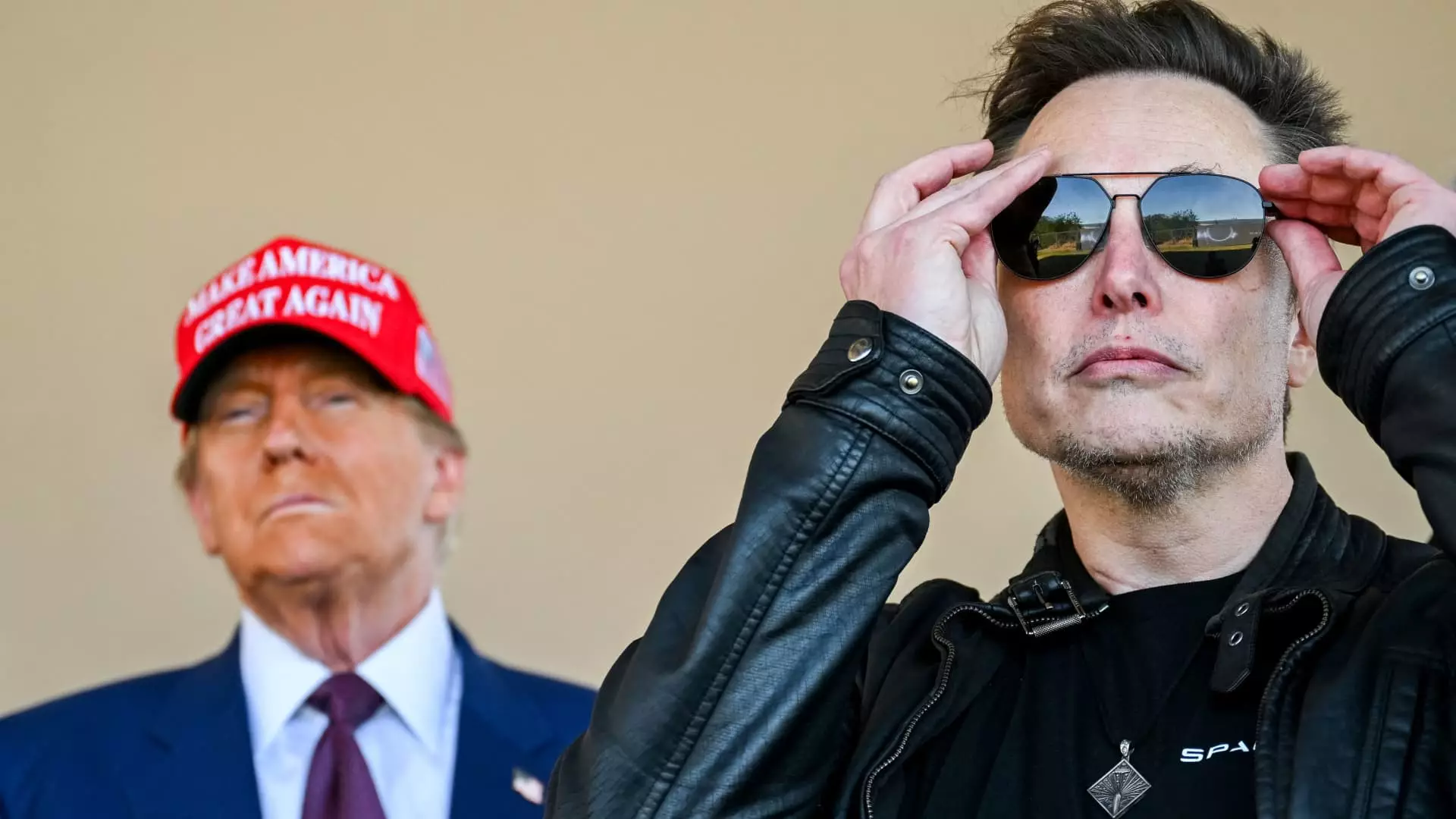Elon Musk stands out as a titan of industry, operating a series of innovative companies that embody his vision of advancing technology and sustainability. His portfolio spans several high-impact sectors, including electric vehicles with Tesla, aerospace innovation via SpaceX, social media dynamics with X, and health technology through Neuralink. Each of these enterprises not only represents a commitment to cutting-edge technology but also highlights Musk’s capability to engage diverse markets simultaneously. This multifaceted approach positions him uniquely within the business landscape, where adaptability is critical to success.
A significant element in the financial success of Musk’s enterprises, particularly SpaceX, is the substantial federal contracts they secure. With over $19 billion acquired from government agreements, SpaceX’s revenue is expected to burgeon even further, especially if a future Trump administration favors the firm with even more lucrative deals. Such financial backing has empowered SpaceX to drive its ambitions in space exploration, showcasing how intertwining business with governmental support can lead to extraordinary growth. This favorable relationship sheds light on the complexities of public-private partnerships in the tech sector.
Musk’s outspoken criticism of government regulations has become a hallmark of his business philosophy. Recently, he has aligned with former presidential candidate Vivek Ramaswamy to spearhead the Department of Government Efficiency (DOGE), echoing a sentiment shared by many entrepreneurs about the need for a streamlined government. In their advocacy for regulatory rescissions and administrative cuts, Musk and Ramaswamy are tapping into a broader discussion within the tech community about the limitations that governmental oversight imposes on innovation. They argue that many of the regulations currently in place hinder the very progress they are intended to protect.
The potential for a Trump administration to lessen regulatory constraints on Musk’s ventures raises critical questions about accountability and oversight. While deregulation might fuel innovation and environmental initiatives, it also poses risks related to corporate governance and ethical conduct. The auditing of government agencies, particularly the Pentagon’s repeated failure to pass audits, illustrates the importance of transparency and diligent oversight in ensuring that taxpayer dollars are managed effectively. Musk’s financial interests must be balanced against public responsibility and trust.
As Musk continues to wield significant influence across various industries, the intersection of business ambitions and governmental favors will likely dominate discussions surrounding his enterprises. There is both potential and peril in the alignment of powerful industries with political movements. The promise of innovation must be tempered with ethical considerations and a commitment to serving the public good. Observers will keenly follow Musk’s trajectory, as his ventures risk becoming emblematic of the broader challenges facing today’s economically intertwined landscape. In navigating these waters, Musk exemplifies the struggles and successes of modern entrepreneurship while underscoring an ongoing debate over the balance between regulation and innovation.


Leave a Reply